- Wednesday, 7 January 2026
Poor policy backup, cumbersome process disappoint women entrepreneurs
Kathmandu, Dec. 31: Sharada Rijal, a successful entrepreneur in felt and handicraft sector, has a bitter experience while obtaining the incentives on exports from the government. She made rounds of banks, customs offices, business chambers and the Department of Industry (DoI) for about three years to get her share of incentives, ranging from 3-5 per cent on the basis of domestic raw materials used and value added, and decided to quit doing it.
"It did no good. There are lots of procedural hassles and complexities than the benefits," she said.
Similarly, Hira Bhattarai, an entrepreneur dealing in natural fibre, said that she hands over her products to an exporter based in Kathmandu who collects the products from the entrepreneurs like her and sells in the international market.
Struggling with skills gaps in trade, limited financing, and institutional neglect, women entrepreneurs in Nepal face barriers in productions and exports hindering business development. For example, all the incentives and benefits on exports are channelised to the exporters not to the producers.
About 29 per cent of the 922,356 enterprises established in the country are owned by women, and half of them grapple with informal operations and inadequate access to resources, raising concerns about gender equity in business.
More women entrepreneurs face challenges in business skills, finance, technology, and limited access to resources compared to their male counterparts. Absence of institutional and policy support hampers access to finance, business development, and reinforces gender bias.
While many countries including in Africa and Asia-Pacific region have included gender in their trade policies, the Trade and Export Promotion Centre (TEPC) of Nepal said that incentives and promotions are provided to the businesses, not to males or females. "There is no gender in trade," said Sharad Bikram Rana, Executive Director of the TEPC.
It is not easy to obtain the government provided incentives on exports. Sharada Rijal, who is also the former President of the FWEAN, said that the banks, DoI, and other agencies are not supportive to women enetrepreneurs in terms of access to finance and international markets. "You need to have documents from a bank, customs office, national and local chamber (and handicraft association if the good falls in the category of handicraft), and DoI. It takes several days to fulfill the requirement and get the incentives," she said.
According to Rijal, many small women entrepreneurs are scared of the process and drop the idea of getting incentives and export their products through an exporter.
Likewise, Bhattarai, who is based in Pokhara, said, "It is difficult to conduct export business and obtain incentives. So trading through an export house seems easier and safer for many women entrepreneurs."
Lack of institutional support
Many women-led businesses operate informally and face constraints in access to loans from Banks and Financial Institutions (BFIs) due to collateral requirements while inadequate technology and marketing knowledge hinder the growth. According to the FWEAN, registration of women-owned and operated micro and cottage enterprises is way below the male-owned businesses although statistics are not available to validate it.
Despite existing institutions and policies promoting women's participation in various sectors, business remains an overlooked area, hindering desired expansion and growth for women in trade.
There are more than 22 institutions and mechanisms for the protection and realisation of women's rights, but none work for economic empowerment and inclusion. For example, National Women Commission (NWC), hasn't worked in the area of entrepreneurship except participating in a few consultation or discussion programmes organised by other stakeholders.
The Ministry of Women, Children and Senior Citizens (MoWCSC), in its 2020 report, has listed 13 legal instruments that help to ensure gender equality and empowerment of women and girls but except the Labour Act, 2017, all are related to issues like social discrimination, violence and education.
Likewise, international treaties and declarations that Nepal has signed so far also have orientation to the rights and violence, not to livelihood, economic opportunities and inclusion.
To formalise the women-run businesses, enhance participation of women in economic activities and decision making, support in poverty alleviation, and promote entrepreneurship, some fabourable policies are needed to create an equitable society.
According to the World Trade Organisation (WTO), trade policies can affect men and women differently, with women facing higher obstacles to taking part in the global economy and world trade.
"Increasing women's participation in the labour market could increase countries' productivity and trade opportunities, leading to greater economic diversification, innovation and poverty reduction," it said.
Women entrepreneurs are provided opportunity to represent on the boards of the Department of Industry, a council led by the Prime Minister and many other public committees but facilitation in marketing, promotion and trade fairs is weak. Immediate Past President of the FWEAN, Niru Rayamajhi Khatri, said that such inclusion in high-level committees is yet to be proven useful in formulating women-friendly policies.
The government had announced to establish a Women Craft Village at the Bhrikutimandap Exhibition Centre in Kathmandu but there has been no progress on the project so far. Women exporters like Rijal and Bhattarai said that the domestic as well as international trade fairs and business expos are instrumental in finding new customers and markets, and forge business-to-business relations. However, the government funding to support entrepreneurs in participating in international fairs has been decreasing in recent years.
According to Rayamajhi, the FWEAN is operating an online platform to showcase the products produced by the women entrepreneurs which has been effective in their promotion. "They can get connected with their customers in an economic way. We have organised an online expo of their products as well," she stated. The platform has helped many entrepreneurs to showcase their products and have buyers from Nepal and abroad.
Poor access to finance
The FWEAN estimated that only about 5 per cent of the 247,880 – about 29 per cent of the total 922,356 enterprises in the country, as per the Economic Census 2018 conducted by the National Statistics Office (NSO) - have obtained bank loan making the businesses having access to finance just 12,000.
Jiblal Bhusal, Joint Secretary at the Ministry of Industry Commerce and Supplies (MoICS), said that there are other programmes like the Rs. 230 million Women Entrepreneurship Fund to support women entrepreneurs.
"Meanwhile, the government is training women entrepreneurs on digital accounting system, providing discounts in business registration and facilitating them with institutional support by establishing a special unit at the Women Ministry," he said. However, there are no special provisions for women entrepreneurs in startup enterprise development loan and other similar policies.
Concessional loan to women
Authorities in the government and Nepal Rastra Bank (NRB) cite the concessional loan to women as one of the most important programmes in promoting women entrepreneurship. Under this facility, women entrepreneurship loan would come with 6 per cent interest subsidy, informed Dr. Gunakar Bhatta, Spokesperson of the NRB.
The subsidy is provided to the BFIs for this concession. By mid-September 2023, the number of women obtaining the Women Entrepreneurship Loan from the BFIs has reached 83,323 and Rs. 86.80 billion has been already mobilised in this sector. Two years ago, the number of women obtaining the loan facility was 66,690 and total mobilised amount was Rs. 69.21 billion.
According to the statistics published by the NRB, BFIs have approved approximately 144,758 loans worth Rs. 253.72 billion under the category of concessional loans including in agriculture and enterprise of returnee migrant workers, dalits and other businesses till mid-September this year.
Statistics show that the number of loans for women entrepreneurship tops the list of all concessional loans although the amount is higher in commercial agriculture and livestock loan category where the BFIs have mobilised Rs. 162.77 billion by mid-September 2023.
Although the impact of the loans given in the name of women entrepreneurship is not measured empirically, it has contributed significantly to financial literacy and inclusion, said Sunil KC, President of the Nepal Bankers Association (NBA).
He said that while it is also true that a part of such loans is obtained by women but used by male members in the family or business, its repayment ratio is better compared to other loan products. It has helped in promoting women entrepreneurship and empowerment in the society.
The loan provided to single women is given with a concession of 1 per cent on the interest rate.
Likewise, as per the Directives, class 'A', 'B' and 'C' BFIs are required to provide minimum 5 per cent of their total loan to deprived sectors, which include women from socially backward background as well as Rs. 2 million loan to micro industries and self-employed businesses run by women entrepreneurs.
Policies limited to rhetoric
The Industry and Investment Promotion Fund, provisioned by the Industrial Enterprise Act, 2020, should have representation of the FWEAN and female experts from the industry.
The proposed Fund which is yet to be created is likely to support women entrepreneurs as it will provide financial support for the development of micro, cottage and small industries, development of technology, rehabilitation of sick industries and advancement of women entrepreneurship.
The law has also clauses for tax exemptions, facilities or concessions relating to income tax and other liabilities but they are designed only for large-scale industries employing above 300 workers.
Similarly, the National Intellectual Property Policy, 2017 aims to identify, promote and develop creative industries from cultural sector, and provide free of cost legal and technical consultancy services pertaining to intellectual property and its protection for differently abled, dalits, marginalised communities, and women.
The President Women Upliftment Programme (PWUP), launched in 2017 and expanded to 34 districts, has a component to focus on livelihood improvement, employment generation and entrepreneurship to transform the life of disadvantaged, poor and marginalised women.
According to the Ministry of Women, Children and Senior Citizens (MoWCSC), the PWUP also includes programmes to organise exhibition of the goods produced by women entrepreneurs and establish sales centres at each province and national level. Similarly, trainings would be organised in the areas of women entrepreneurship and financial access.
Likewise, Trade Deficit Minimization Procedure 2079, has announced support for the national and international promotion of goods produced by women entrepreneurs via e-haat bazar. But it has not come into operation yet.
Give preference to women
A World Trade Organization (WTO) research paper published in 2019 has suggested that the government should provide quota or preference in favour of women entrepreneurs, financial support and incentives to women-led Micro, Small and Medium Enterprises (MSMEs), help in developing skills to access international markets, and promote women's empowerment in export sector.
According to the WTO, countries have simplified business license procedures for women entrepreneurs, involved ministries and governmental agencies responsible for gender equality in trade formulation and implementation, and invested in trade capacity building.
The South Asia Watch on Trade Economics and Environment (SAWTEE), a regional trade think tank, has suggested bridging women's access gap in finance and markets, supporting in the marketing of products, increasing use of online technologies, setting up special funding vehicle, and implementing gender sensitive policy making.
Former President of the Federation of Nepalese Chambers of Commerce and Industry (FNCCI), Bhawani Rana, said that women entrepreneurs have been left behind despite the country having some favourable policies in absence of their effective implementation.
"Many women entrepreneurs have had unpleasant experience while obtaining the facilities announced by the government including tax discount and incentives on exports," she said.
Rana stated that in order to empower women in business, they should be formalised in the first place, and all stakeholders should come together to make this happen.
Immediate Past President of the FWEAN, Niru Rayamajhi Khatri also said that the process to obtain the incentives on export is cumbersome and takes a long time. "It is not women entrepreneur friendly," she said. She also added that such complexities have forced the producers and exporters quit the sector and become an importer and trader.

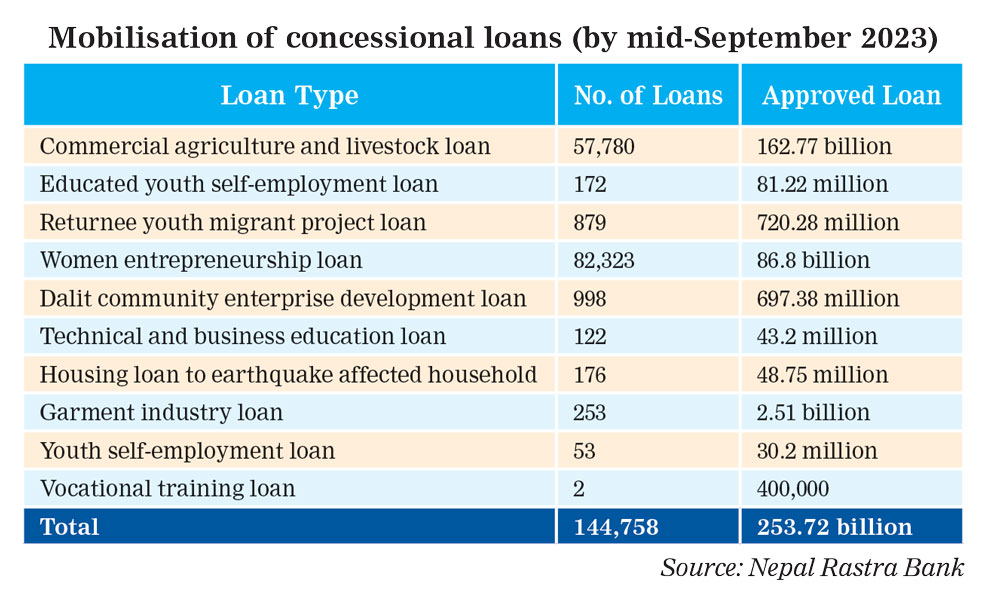

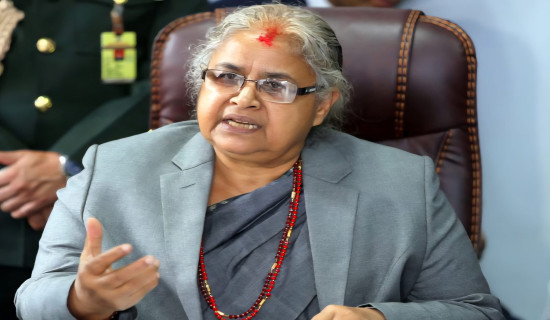


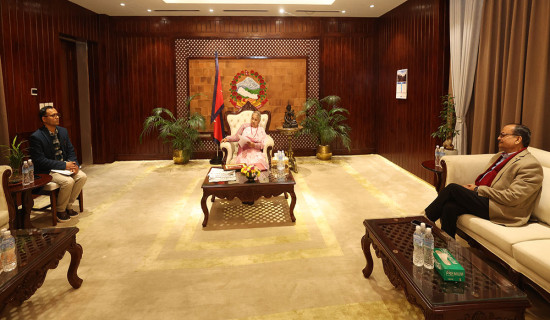
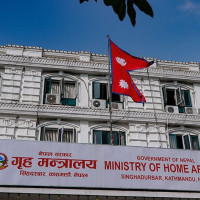
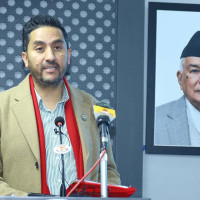
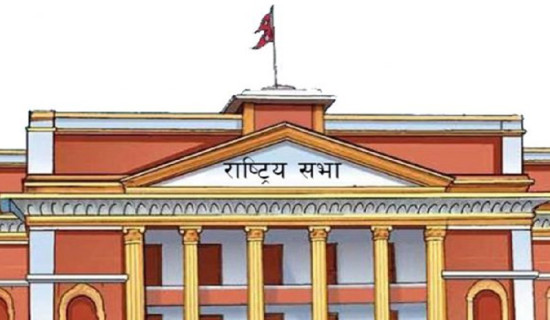



-original-thumb.jpg)



